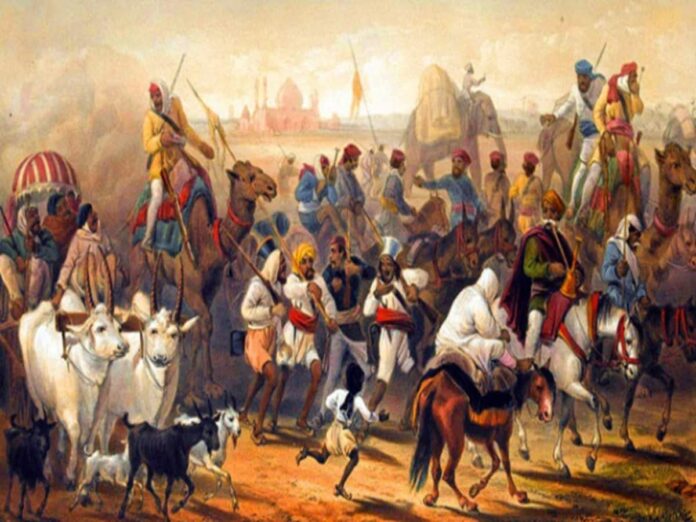The Revolt of 1857 was a significant event in Indian history, marking a turning point in the Indian struggle for independence from British rule. The rebellion emerged as a response to a number of grievances felt by Indian soldiers, peasants, and nobles under British colonial rule. The revolt lasted for almost a year, and although it was ultimately unsuccessful, it had a lasting impact on the Indian nationalist movement.
Prior to the rebellion, British rule in India was marked by economic exploitation, social discrimination, and cultural oppression. The British East India Company had imposed a system of land revenue that was harsh and exploitative, leading to the impoverishment of many peasants. Moreover, the British had also passed laws that discriminated against Indians on the basis of religion, caste, and gender. Finally, the British had begun a campaign of cultural assimilation, seeking to undermine traditional Indian languages and customs in favor of English, thus threatening the very identity of Indian culture.
In these conditions, the Indian rebellion of 1857 began in the town of Meerut, among Indian soldiers who were serving under British Rule. These soldiers, who were referred to as Sepoys, were subjected to harsh conditions and cycles of racial and religious discrimination. The revolt soon spread to other regions of the country, including Delhi, Lucknow, and Kanpur, where Indian nobles and peasants joined the revolt against the British.
Early successes by the rebel forces fed the hopes of Indian nationalists for an independent India, but the British ultimately quelled the revolt with substantial force. Yet the impact of the rebellion on Indian nationalism was significant. The rebellion revealed the potential for Indian unity against the British and the need for a new Indian nationalist movement to fight for independence.
Furthermore, the rebellion also revealed the inherent weaknesses in British colonial rule in India. The British had overreached and underestimated the extent of Indian discontent, and they were unprepared for the strong resistance encountered during the revolt. The Indian majority was ultimately willing to sacrifice their lives for their freedom, and the British were shaken by the lesson they learned after the revolt.
In conclusion, the Revolt of 1857 was a significant event in Indian history, representing the first major attempt to overthrow British colonial rule in India. Although the rebellion was ultimately unsuccessful, it shattered the myth of British invincibility and demonstrated the potential for Indian unity and nationalism. The revolt had a lasting impact on the Indian nationalist movement, resonating in the memory of Indians today as a symbol of resistance and rebellion against oppression.

































